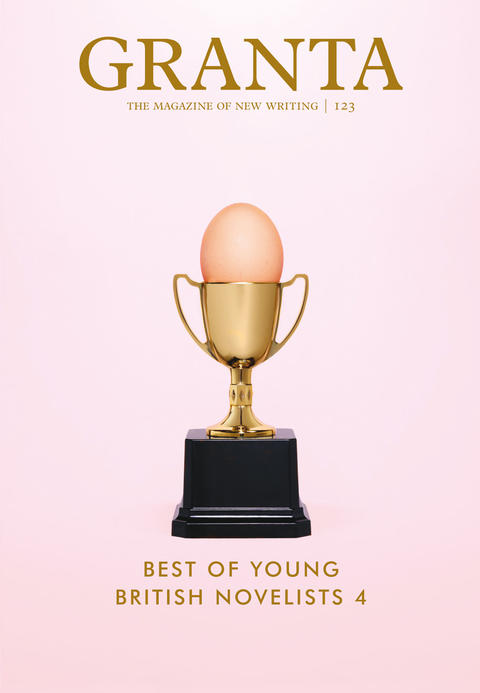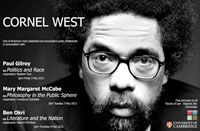POETRY READING: DAVID LEHMAN: TUESDAY 23 APRIL David Lehman is the award-winning author of eight books of poetry, editor of The Oxford Book of American Poetry, and series editor of the Best of American Poetry series for Scribners. He teaches in the graduate writing program at the New School in New York. He will be reading poems from his new collection in the Master's Lodge, Clare College Old Court, on Tuesday April 23rd at 5.30. The reading will be followed by a drinks reception. All are welcome. If possible, let Sophie King (srk35@cam.ac.uk) know that you intend to come - or just turn up.
Month: April 2013
Granta has selected the next decade’s British novelists under-40 to watch.
Some are expected; some might not be.
Have a look here:
Naomi Alderman
Tahmima Anam
Ned Beauman
Jenni Fagan
Adam Foulds
Xiaolu Guo
Sarah Hall
Steven Hall
Joanna Kavenna
Benjamin Markovits
Nadifa Mohamed
Helen Oyeyemi
Ross Raisin
Sunjeev Sahota
Taiye Selasi
Kamila Shamsie
Zadie Smith
David Szalay
Adam Thirlwell
Evie Wyld
…see more here . . . .http://www.granta.com/Archive/123
– and here too . . . http://www.bbc.co.uk/programmes/b01s0f63
‘[P]ostcolonial is a word on everyone’s lips, even if no one seems to know what it means’
– Graham Huggan (The Postcolonial Exotic, p. 1)
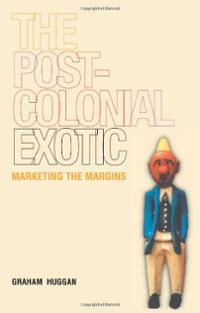 I put forward Huggan’s introduction to the Postcolonial Exotic with the most abjectly selfish intentions. The Contemporaries research group is, at its heart, an eclectic collection of readers who all work on a body of authors creating literature in the same time period but who are all up to fairly different things. I wondered how the group would respond to the opening of a work that caused a fairly wide ripple in the pool of postcolonial studies but seems not to have touched any other sub-disciplines; how we would go about discussing a text whose ideas have spectacularly wide-reading implications but which positions itself, immediately, as only about this hard to define thing dubbed the ‘postcolonial’.
I put forward Huggan’s introduction to the Postcolonial Exotic with the most abjectly selfish intentions. The Contemporaries research group is, at its heart, an eclectic collection of readers who all work on a body of authors creating literature in the same time period but who are all up to fairly different things. I wondered how the group would respond to the opening of a work that caused a fairly wide ripple in the pool of postcolonial studies but seems not to have touched any other sub-disciplines; how we would go about discussing a text whose ideas have spectacularly wide-reading implications but which positions itself, immediately, as only about this hard to define thing dubbed the ‘postcolonial’.
Huggan’s book is, in the main, about the commodification of cultural difference. It argues that postcolonial authors, broadly those who write about or on behalf of the developing world, exist in an international literary market whose mainstream readers use their texts like tourists use foreign spaces: in search of the exotic. For Huggan,
‘the exotic is not, as is often supposed, an inherent quality to be found ‘in’ certain people, distinctive objects, or specific places; exoticism describes, rather, a particular mode of aesthetic perception – one which renders people, objects and places strange even as it domesticates them . . . Exoticism, in this context, might be described as a kind of semiotic circuit that oscillates between the opposite poles of strangeness and familiarity’ (p. 13).
Thus postcolonial writers are exoticised – made different and marketed for their difference in a way that acts to subordinate and control their products and the people and places they represent.
Our conversation, as I remember it, mainly assessed Huggan’s argument and clarified his claims. At least one participant asked why the text made such a splash – and how and why Huggan’s presentation of these contentions restricted itself to the postcolonial sphere – surely all authors’ objects are similarly ‘exoticised’? Of the things we touched upon the most productive aspect of the conversation dwelled on Huggan’s unspoken indictment of all English academics focused on the contemporary (if not ‘all’ full stop). If we follow his argument to its logical limit, in some sense all of our practice acts to domesticate the strange – our whole function is to select texts that help us to condense peoples, periods, preoccupations and affects into single sentences or bodies of works or pithy lines. We distil complex texts, in conjunction with marketers, agents and editors, into syllabus-fitting and often singular concepts. The biggest question raised, one we couldn’t quite fully cover, was: How do we not commodify?
Kasia Boddy will be speaking at a symposium on American Work in Oxford on May 18th.
Malachi will be the respondent for a discussion on Literature and Nation between Cornel West and Ben Okri on May 9th.
A symposium on Christine Brooke-Rose (with John Calder, Brian Dillon, Natalie Ferris, Tom McCarthy, Rick Poynor and Ali Smith) at the Royal College of Art on April 19th.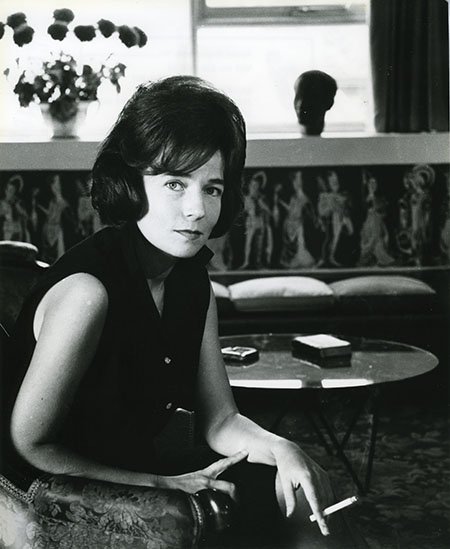 View post
View post
Rob Macfarlane will be disc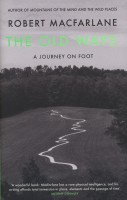 ussing his book The Old Ways: A Journey on Foot at WordFest on 13th April.
ussing his book The Old Ways: A Journey on Foot at WordFest on 13th April.
 Today Margaret Thatcher died, no doubt prompting numerous new books, films, and sentimental summings up. But I’ve been trying to think what, to date, we might consider the most memorable responses to Thatcherism. Boys From the Blackstuff made a big impression on me back in 1982 (although I haven’t seen it in a while); I wonder if that’ll be shown again in tribute! Never mind – Yosser’s Story is on YouTube: http://youtu.be/0CRXnO9v0sA
Today Margaret Thatcher died, no doubt prompting numerous new books, films, and sentimental summings up. But I’ve been trying to think what, to date, we might consider the most memorable responses to Thatcherism. Boys From the Blackstuff made a big impression on me back in 1982 (although I haven’t seen it in a while); I wonder if that’ll be shown again in tribute! Never mind – Yosser’s Story is on YouTube: http://youtu.be/0CRXnO9v0sA
Or, if you’ve only a minute or two: http://youtu.be/aObZJN9zDtA
Post by Kasia Boddy
The deadline for proposals for the Writing South Africa Now conference is April 8th.
